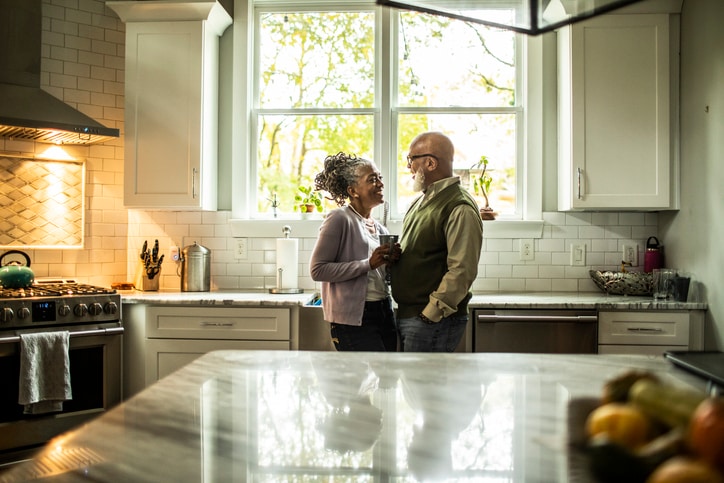Financial planners, family-law attorneys, and medical professionals have long urged people to write advance directives—legal statements that stipulate what sort of health care and treatment you’d want in the event of an illness or injury that renders you unable to communicate. While they’re traditionally envisioned for emergencies, these statements (which include living wills and health care proxies) can also come into play when someone is dying from a terminal disease. And in the last few years, there’s been a trend toward an even more targeted document: a dementia or Alzheimer’s disease advance directive which deals with disease-specific issues and covers the gaps left by standard directives.
“Official state advance directives tend to apply to relatively rare scenarios, like someone being in a ‘permanent coma,’ or ‘persistent vegetative state,’” says Barak Gaster, MD, a professor at University of Washington School of Medicine and developer of a new advance directive for people with dementia. “But the most common reason that people lose the ability to make decisions about their care is dementia.”
And dementia is on the rise, as the population ages and life expectancy increases. Approximately 30% of those aged 80 and up have some type of dementia. By 2025, as the last of the baby boom generation hits senior status, 7.1 million Americans will be living with Alzheimer’s disease, the Alzheimer’s Association estimates.
“Baby boomers are already experiencing these loss-of-capacity diseases through their parents,” says Robb Miller, former Executive Director of End of Life Washington and co-author of another advance directive. “They’ve witnessed bad deaths, where final wishes were not honored or unknown, and are determined not to go down that road.”
Why dementia is different
Unlike other long-term, degenerative conditions, dementia attacks the brain’s cognitive functions—the ability to remember, reason and communicate coherently—but leaves the body intact (until the final stages, when it impacts motor skills like walking and swallowing).
“With other terminal illnesses, the person is able to speak for themselves, and the window of time when they can no longer articulate what they want is small,” notes Kim Callinan, CEO of Compassion & Choices, a non-profit dealing with end-of-life issues. “Dementia patients live [on average] for eight to 10 years, and for a good part of that time, they’re not mentally capable and they can’t speak for themselves,” In other words, they are conscious, but not lucid; without capacity, but not actively dying—a perfect fall-through-the-cracks situation for traditional living wills.
What dementia advance directives cover
Though they have similar names, the dementia-specific advance directives currently in circulation vary a good deal. Whatever they cover, the most effective directives share certain features, according to a paper published in the May-June 2014 Hastings Center Report. They should, among other things, explain why one does or doesn’t want to live with prolonged dementia; indicate at what stage provisions go into effect; be reinforced by conversations with family, caregivers, and physicians; and be augmented by the appointment of a health proxy or power-of-attorney.
Here are a few available today:
End of Life Washington’s Alzheimer’s Disease/Dementia Mental Health Advance Directive. This directive is “not about medical issues but more about the challenges of living with Alzheimer’s,” says co-author Miller—enumerating preferences for topics including finances, care facilities, even “intimate relations” with a partner.
Gaster’s Health Directive for Dementia, in contrast, exclusively addresses medical treatment. Patients check off one of four options, ranging from “full efforts to prolong life” to “comfort-oriented care only,” for the mild, moderate, and severe stages of the disease.
Compassion & Choices’ Dementia Provision (one of the oldest directives, dating back to 2008) and the Advance Directive for Receiving Oral Food and Fluids in the Event of Dementia, developed by the nonprofit End of Life Choices New York (one of the newest, launched in 2018) zero in on options for eating and drinking, in the event a person can no longer feed him- or herself. The New York directive, which also includes language about comfort and dying at home, specifies it’s for patients in stages 6 or 7 (the final stages) on the Functional Assessment Staging Tool for Alzheimer’s; the Compassion & Choices Provision describes a similar advanced condition.
Are these forms legal?
Many states have official forms for living wills and heath proxies. These dementia-specific advance directives basically serve as additions to the official documents, which usually contain provisions for additional materials. The End of Life Washington directive was drafted to comply with Washington State’s Mental Health Advance Directive, mandating signatures of both the patient and two witnesses; so does the End of Life Choices New York document (though New York is one of the few states which lacks a living will form).
Whether using one of these forms or one of their own, people wishing to draft a dementia-specific advance directive should probably consult an attorney to ensure it conforms with local law. The forms seem to be too new for any legal challenges to them have been documented as yet, but it’s possible that certain provisions may not be accepted by a medical or care facility at critical moments. Or even by the patient: Minds can change, even impaired ones. “What a person says in the moment always takes precedence over what they signed in the past,” Gaster notes.
Start the conversation
If nothing else, the advance directive can be a tremendous help in serving as a guide for the patient’s health proxy. Even just thinking about composing one encourages those with dementia and their families to start a conversation and anticipate the inevitable end, as far off as that may seem. (If you’re having trouble bringing up the subject, The Conversation Project has a “starter kit” for Alzheimer’s and dementia, to help families begin talking about these difficult issues.)
When planning for a dementia death, “it’s always too soon—until it’s too late,” warns Rosemary Lloyd, an advisor to faith communities for The Conversation Project. “These advance directives are the best paper trail to what a person would’ve wanted.”
By Troy Segal




